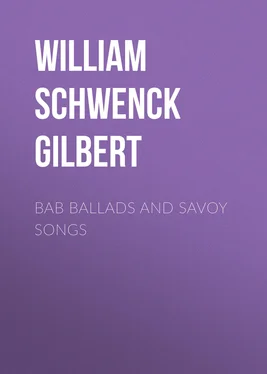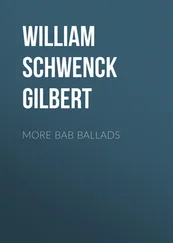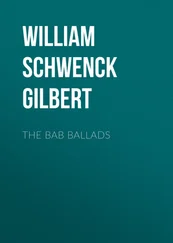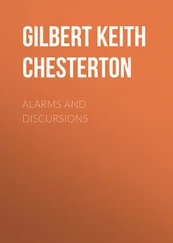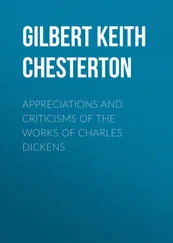"I have a widowed mother who
Would be the very thing for you—
She long has loved you from afar,
She washes for you, Captain R."
The captain saw the dame that day—
Addressed her in his playful way—
"And did it want a wedding ring?
It was a tempting ickle sing!
"Well, well, the chaplain I will seek,
We'll all be married this day week—
At yonder church upon the hill;
It is my duty, and I will!"
The sisters, cousins, aunts, and niece,
And widowed ma of Captain Reece,
Attended there as they were bid;
It was their duty, and they did.
THE BISHOP AND THE BUSMAN
It was a Bishop bold,
And London was his see,
He was short and stout and round about,
And zealous as could be.
It also was a Jew,
Who drove a Putney bus—
For flesh of swine however fine
He did not care a cuss.
His name was Hash Baz Ben,
And Jedediah too,
And Solomon and Zabulon—
This bus-directing Jew.
The Bishop said, said he,
"I'll see what I can do
To Christianize and make you wise,
You poor benighted Jew."
So every blessed day
That bus he rode outside,
From Fulham town, both up and down,
And loudly thus he cried:—
"His name is Hash Baz Ben,
And Jedediah too,
And Solomon and Zabulon—
This bus-directing Jew."
At first the busman smiled,
And rather liked the fun—
He merely smiled, that Hebrew child,
And said, "Eccentric one!"
And gay young dogs would wait
To see the bus go by
(These gay young dogs in striking togs)
To hear the Bishop cry:—
"Observe his grisly beard,
His race it clearly shows,
He sticks no fork in ham or pork:—
Observe, my friends, his nose.
"His name is Hash Baz Ben,
And Jedediah too,
And Solomon and Zabulon—
This bus-directing Jew."
But though at first amused,
Yet after seven years,
This Hebrew child got awful riled,
And busted into tears.
He really almost feared
To leave his poor abode,
His nose, and name, and beard became
A byword on that road.
At length he swore an oath,
The reason he would know—
"I'll call and see why ever he
Does persecute me so."
The good old bishop sat
On his ancestral chair,
The busman came, sent up his name,
And laid his grievance bare.
"Benighted Jew," he said,
(And chuckled loud with joy)
"Be Christian you, instead of Jew—
Become a Christian boy.
"I'll ne'er annoy you more."
"Indeed?" replied the Jew.
"Shall I be freed?" "You will, indeed!"
Then "Done!" said he, "with you!"
The organ which, in man,
Between the eyebrows grows,
Fell from his face, and in its place,
He found a Christian nose.
His tangled Hebrew beard,
Which to his waist came down,
Was now a pair of whiskers fair—
His name, Adolphus Brown.
He wedded in a year,
That prelate's daughter Jane;
He's grown quite fair—has auburn hair—
His wife is far from plain.
BY A GENERAL AGENT
I knew a boor—a clownish card,
(His only friends were pigs and cows and
The poultry of a small farmyard)
Who came into two hundred thousand.
Good fortune worked no change in Brown,
Though she's a mighty social chymist:
He was a clown—and by a clown
I do not mean a pantomimist.
It left him quiet, calm, and cool,
Though hardly knowing what a crown was—
You can't imagine what a fool
Poor rich, uneducated Brown was!
He scouted all who wished to come
And give him monetary schooling;
And I propose to give you some
Idea of his insensate fooling.
I formed a company or two—
(Of course I don't know what the rest meant,
I formed them solely with a view
To help him to a sound investment).
Their objects were—their only cares—
To justify their Boards in showing
A handsome dividend on shares,
And keep their good promoter going.
But no—the lout prefers his brass,
Though shares at par I freely proffer:
Yes—will it be believed?—the ass
Declines, with thanks, my well-meant offer!
He added, with a bumpkin's grin,
(A weakly intellect denoting)
He'd rather not invest it in
A company of my promoting!
"You have two hundred 'thou' or more,"
Said I. "You'll waste it, lose it, lend it.
Come, take my furnished second floor,
I'll gladly show you how to spend it."
But will it be believed that he,
With grin upon his face of poppy,
Declined my aid, while thanking me
For what he called my "philanthroppy?"
Some blind, suspicious fools rejoice
In doubting friends who wouldn't harm them;
They will not hear the charmer's voice,
However wisely he may charm them.
I showed him that his coat, all dust,
Top boots and cords provoked compassion,
And proved that men of station must
Conform to the decrees of fashion.
I showed him where to buy his hat,
To coat him, trouser him, and boot him;
But no—he wouldn't hear of that—
"He didn't think the style would suit him!"
I offered him a country seat,
And made no end of an oration;
I made it certainly complete,
And introduced the deputation.
But no—the clown my prospects blights—
(The worth of birth it surely teaches!)
"Why should I want to spend my nights
In Parliament, a-making speeches?
"I haven't never been to school—
I ain't had not no eddication—
And I should surely be a fool
To publish that to all the nation!"
I offered him a trotting horse—
No hack had ever trotted faster—
I also offered him, of course,
A rare and curious "old Master."
I offered to procure him weeds—
Wines fit for one in his position—
But, though an ass in all his deeds,
He'd learnt the meaning of "commission."
He called me "thief" the other day,
And daily from his door he thrusts me;
Much more of this, and soon I may
Begin to think that Brown mistrusts me.
So deaf to all sound Reason's rule
This poor uneducated clown is,
You cannot fancy what a fool
Poor rich uneducated Brown is.
THE THREE KINGS OF CHICKERABOO
There were three niggers of Chickeraboo—
Pacifico, Bang-Bang, Popchop—who
Exclaimed, one terribly sultry day,
"Oh, let's be kings in a humble way."
The first was a highly-accomplished "bones,"
The next elicited banjo tones,
The third was a quiet, retiring chap,
Who danced an excellent break-down "flap."
Читать дальше
